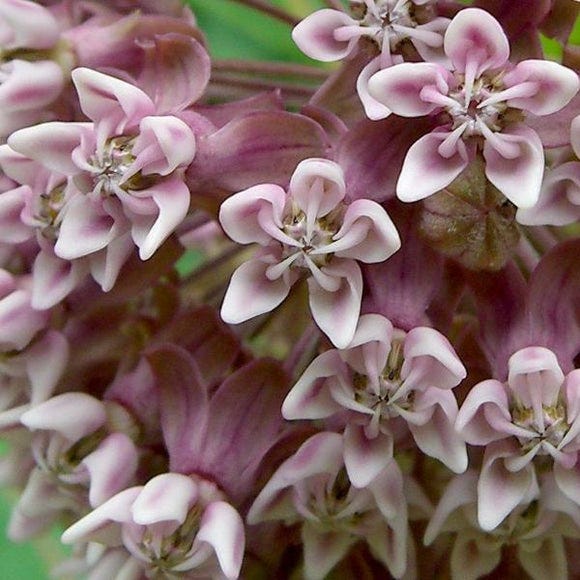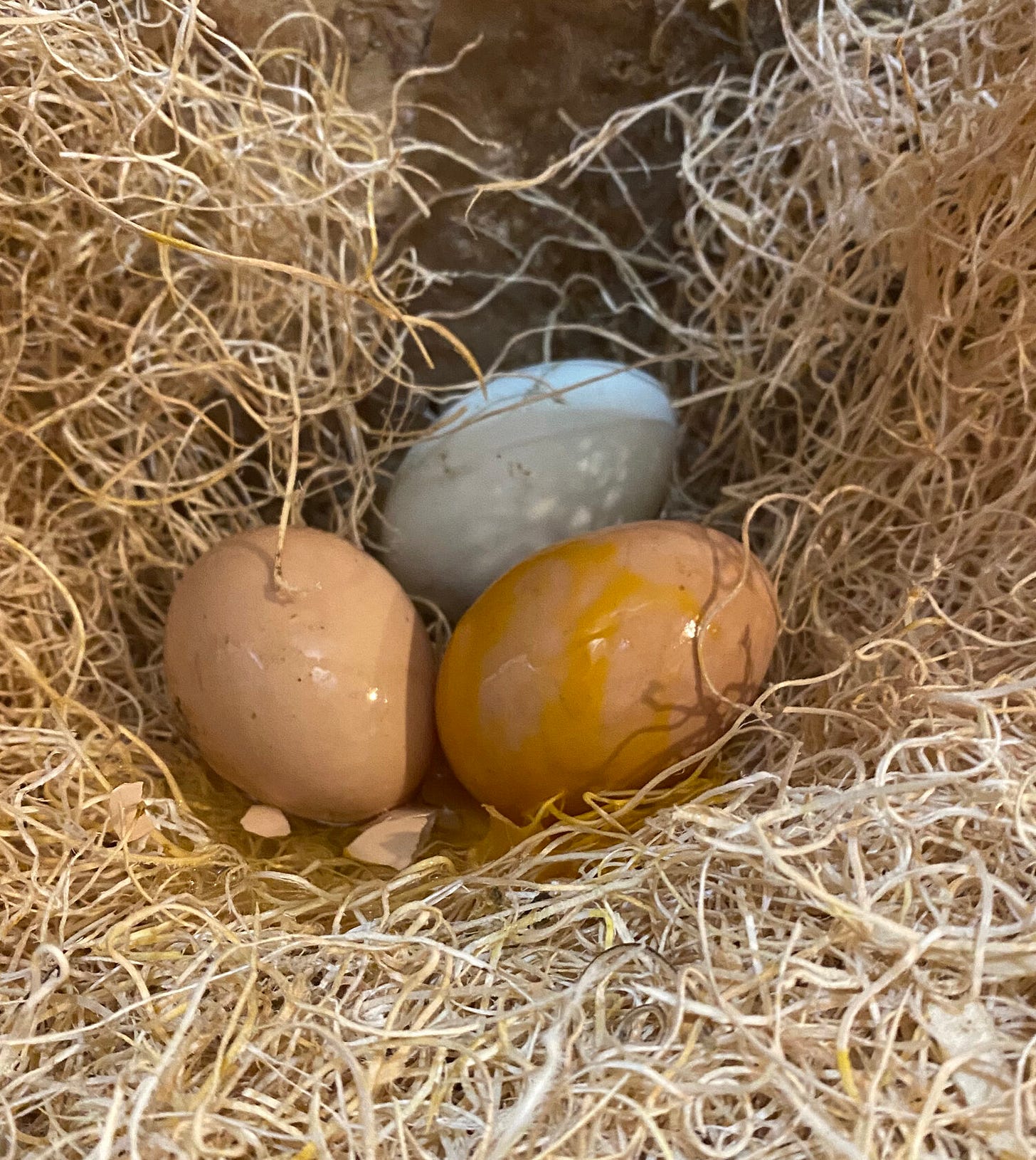You Need to Stop and Smell the Roses or Lose Your Grip on Reality
Honoring the Olfactory and the Truth Therein
Artificiality is now the norm. Screens can simulate nearly everything, images can be doctored, videos completely fabricated, words twisted, sounds engineered. There, as always, is hope however. In this wounded modern world, where so many things have become false or illusory, you always possess one pure conduit of truth: your sense of smell. In a sea of artificial reality where you cannot trust your own eyes, scent resists the modern manipulation. It is stubbornly real, a direct communion between the natural world and your own body, your mind. Indeed, as you are assaulted by the lies of your contemporary culture that tells you up is down, it may be the best means by which you stay grounded to reality.
When you walk a country road this time of year, you will notice the milkweed blooming along every roadside and pasture edge. Its flowers are a muted pink, shaped like little stars, and their scent drifts across the fields in waves of rose and honeysuckle. There is nothing quite like it, nothing synthetic that can replicate the way it hangs in the warm July air. Any attempt to manufacture a milkweed perfume would be folly. You could analyze, deconstruct, and place back together the exact chemical makeup of what makes a milkweed flower smell and you know in your heart of hearts a simple truth.
It just wouldn’t be right.
Just the way strawberry flavored ice cream never quite tastes like real strawberries, just the way you can tell when a dress is made with a polyester blend, just the way you can sense when someone’s tone is insincere; there is something in you that can perfectly sense when something is attempting to be what it is not, when its authenticity is compromised. In a time when so much is digitized and mediated and reduced, a single breath of milkweed is a reminder that reality still waits for you just beyond the screen, the threshold of your door. You cannot download this fragrance or bottle it. Even if you could, it can only be experienced perfectly in its natural environment; imagine for a moment the perfectly constructed milkweed perfume in the lobby of an urban apartment building. Are you tantalized or repelled?
As with all good things, you must be present to receive the aroma of milkweed. The sweetness there on the country roadside in early July is proof that not all beauty has been commercialized or rebooted or churned into a homogenous slurry. Some old truths are immune to such fleeting things. You must go outside, find a wild place, and remind yourself with a deep, deep breath what life is like away from all the rebooted, commercialized, hyper marketed grey-safe content being pumped at you. That's what so much of contemporary global culture has become, hasn't it? Grey-safe. A corporate, HR-approved gruel to keep you from the green.
Scent is an honest witness. It does not just guide your eyes to the beauty of a wildflower in full bloom, but also to decay.
If something has gone wrong, you will smell it before you see it. Your eyes can overlook details, your mind can rationalize them away, but your nose is harder to fool. Perhaps you notice the rancid odor drifting near the chicken coop on a warm afternoon. It is the kind of smell that triggers a subtle unease before you even fully register it. You follow the trail of sulfur and carrion fumes through the door to the bedding straw until you discover the culprit: a missed egg you must have overlooked days earlier has split open, spilling its contents into the straw and attracting a nest of maggots. That smell is not subtle. It does not invite debate or interpretation. It insists on attention, on intervention, on a clear acknowledgment that something has begun to rot.
Modern culture tends to mask its own corruption. Slogans, curated feeds, sniveling qualifiers. You learn to trust your senses because when someone is lying or when a system is rotting from within, you often feel it first in your gut, the same way your stomach tightens at the scent of something spoiled. You may even be told by the academically minded that disliking a putrid smell is merely a product of your western upbringing, identity, or status, that cultural influences—not your own good instinct—shape your perception of smell and it can simply be rationalized away if you were but a bit more enlightened. Ultimately though, you know when something is wrong and you act.
There is another side to this honesty, one that affirms rather than celebrates the bloom or warns of the rot. If you were to visit the bee yard with me now, the air itself smells like warm bread. The hives are in their most productive season, drawing comb and storing nectar that will become honey by summer’s end if not sooner. You can stand near the hives and breathe in the scent of progress, of abundance taking shape cell by hexagonal cell, of promise manifest.
It is a wordless assurance that some good work remains untouched by the counterfeit world beyond the hedgerow.
It is a smell that settles your spirit, a full-throated declaration that some work is still true and good and yet remains amid the decay. No algorithm can counterfeit this aroma, no influencer can monetize it, no unelected bureaucrat can tax it. When the bees are making honey, you can tell. The air changes. The world declares itself trustworthy in that small way, that wholly-good scent of honey ripening in the comb. Evidence to which you can point that the world may still be trusted in places where people have chosen to care. It is a reminder that there is still good work to be done, good work that will outlast you. Whatever your good work may be, whatever you do to make the world more beautiful, someday others will stand where you are standing and breathe in that same fragrance, feeling that same hope. Sawn wood, chiseled stone, tilled loam. It is all but evidence that the essential things—family, nature, tradition—remain unbroken. It is the necessary reminder that the ground beneath your feet is still real, and that truth, when you know how to sense it, still lingers in the air and it is something too fine to contain or corrupt.
All of this reminds you to keep your senses awake. Scent remains one of the last simple proofs that something is real, that something is working or failing, that something is worth your attention. In a time when illusions are easier to produce than ever before, the honest report of your nose is a gift. Milkweed blooming, a rotting egg, the smell of your own good craft: these are signs that the world still tells the truth if you care to step outside, bring it forth, and breathe it in.
Three Actions to Live a More Grounded Life
1. Seek Out Unmistakable Scents in Their Natural Place
This week, take time to walk somewhere wild or uncultivated. Find a place where milkweed, clover, or wild roses grow without human arrangement. When you arrive, pause to close your eyes and simply breathe. Notice the fragrance exactly as it exists, untamed and imperfect. You cannot download this experience. You cannot simulate it.
2. Let Scent Be Your Early Warning System
Resolve to trust your nose when something feels “off.” If you catch the whiff of mildew, rancid eggs, or decay—literal or figurative—act on it without delay. Clean the coop, take out the trash, confront the problem. Likewise, when you sense moral or cultural rot, do not let polite convention convince you to look away. A culture of illusions depends on your willingness to ignore what your senses are telling you. Let your nose teach you that small problems grow worse when you pretend they do not exist.
3. Surround Yourself With the Aroma of Good Work
Spend part of this week making or tending something real. It might be baking bread, cutting fresh wood, harvesting herbs, or caring for an animal. As you work, notice the smells that rise from your effort: sawdust, warm dough, clean earth, flesh and fur. These scents are evidence that you are part of something trustworthy and enduring. When you fill your days with genuine labor and its unmistakable markers, you fortify yourself against the grey-safe illusions of modern life.







Beautiful writing expressing beautiful ideas.
I never thought of the sense of smell being one thing modern technology just cannot grasp. Phew.